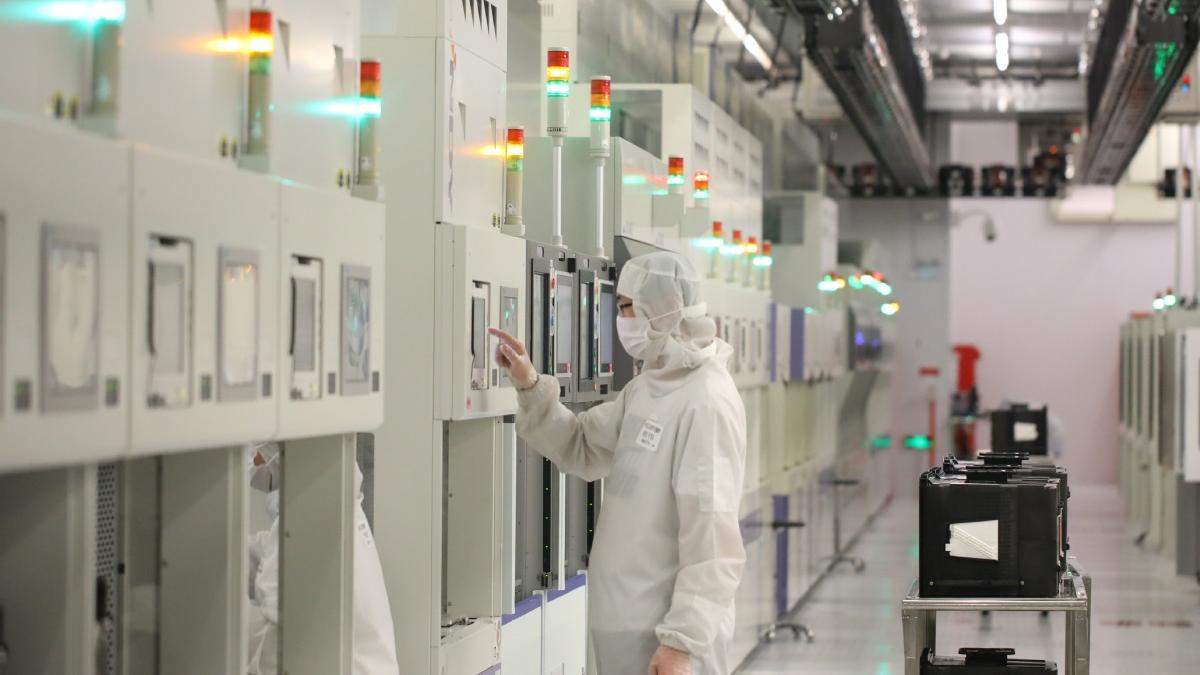 This undated photo shows an employee of Semiconductor Manufacturing International Corp working at the company's factory in Beijing. (PHOTO / XINHUA)
This undated photo shows an employee of Semiconductor Manufacturing International Corp working at the company's factory in Beijing. (PHOTO / XINHUA)
WASHINGTON - Companies that supply the chip sector with sophisticated and expensive equipment plan to warn the Trump administration against a proposal to blacklist China’s top chipmaker Semiconductor Manufacturing International Corporation, arguing it would be “detrimental” to US industry.
In the draft letter, the group argues that blacklisting SMIC would jeopardize the United States’ technological edge by making it harder for US companies to supply SMIC, which accounts for as much as US$5 billion in annual US origin equipment and material sales
The companies are represented by the semiconductor and electronics manufacturing suppliers industry group SEMI, which drafted a letter obtained by Reuters that could be sent as soon as this week to Commerce Department Secretary Wilbur Ross.
ALSO READ: Top China chipmaker more than triples in Shanghai debut
In the draft letter, the group argues that blacklisting SMIC would jeopardize the United States’ technological edge by making it harder for US companies to supply the company, which accounts for as much as US$5 billion in annual US origin equipment and material sales.
They also argue that such a move would “contribute to a growing perception” that the delivery of US goods is “unreliable” and hit US market share worldwide.
“We urge the Department to carefully consider the immediate and long-term detrimental impacts to US industry, economic and national security that may result from the addition of SMIC to the Entity List,” said the group, which boasts 2,400 members worldwide.
The Commerce Department did not immediately respond to a request for comment.
Joe Pasetti, SEMI’s vice president of global public policy at SEMI, said “We don’t comment on draft letters leaked to the press.”
ALSO READ: Beijing firmly opposes US sanction on 28 Chinese entities
Reuters reported earlier this month that the Defense Department was working with other agencies to determine whether to add SMIC to the Commerce Department’s so-called “entity list,” which would force US suppliers to seek hard-to-get licenses before shipping to the company. Shares of the company plunged by nearly a quarter on the news.
The entity list has been used as a key tool by the administration to hammer Chinese companies under scrutiny in Washington, from telecoms giant Huawei to surveillance equipment producer Hikvision.
On Thursday, Kioxia Holdings Corp, the world’s second-largest maker of flash memory chips, warned that tighter US restrictions on Huawei could cause memory chip oversupply and drive down market prices.
Kioxia, formerly known as Toshiba Memory, also said in a regulatory filing that all or most of its chip sales to the Chinese tech giant are highly likely to be subject to the tighter restrictions that came into force this week.


